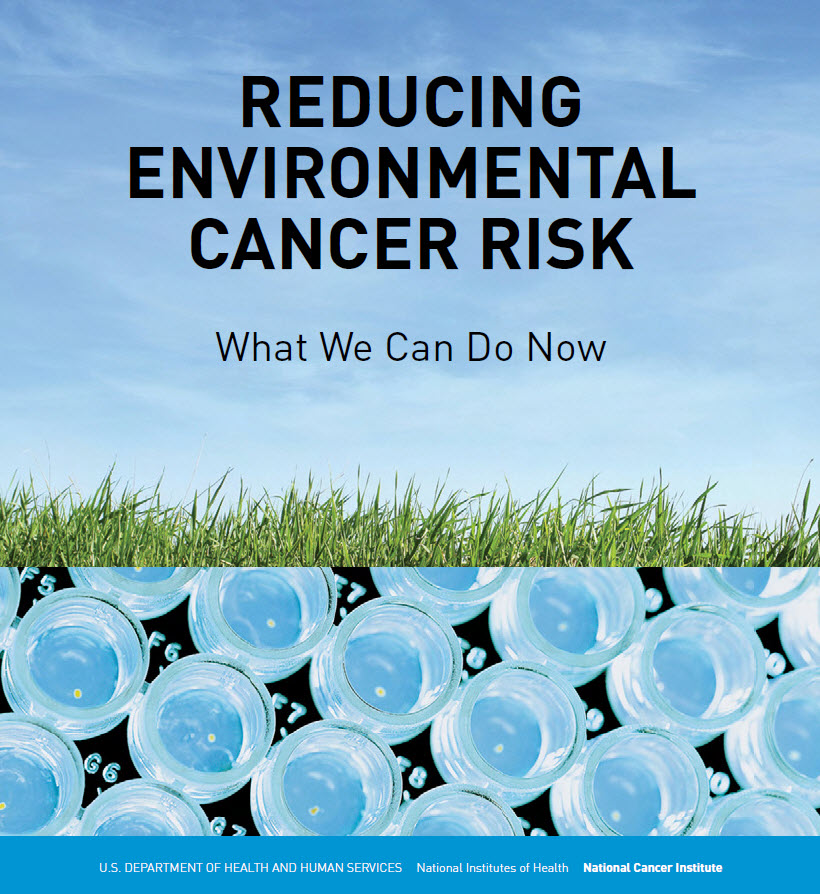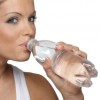 A new report has come out from the President's Cancer Panel which was written by .LaSalle Leffell, Jr.,M.D.,F.A.C.S, and Margaret Kripke Ph.D. The title of the report is Reducing Environmental Cancer Risk — What We Can Do Now.
A new report has come out from the President's Cancer Panel which was written by .LaSalle Leffell, Jr.,M.D.,F.A.C.S, and Margaret Kripke Ph.D. The title of the report is Reducing Environmental Cancer Risk — What We Can Do Now.
This report points out that in 2009 approximately 1.5 million American men women and children were diagnosed with cancer and 562,000 died from the disease. Approximately 41% of Americans will be diagnosed with cancer at some point in their lives and approximately 21% will die from cancer.
This report was brought about because of the growing body of evidence that links environmental exposures to cancer. The report points out that the" public is becoming increasingly aware of the unacceptable burden of cancer resulting from environmental and occupational exposures they could have been prevented through appropriate national action."
One of the findings of the panel that particularly concerned them was the finding that the true burden of environmentally induced cancer has been "grossly underestimated". They point out that nearly 80,000 chemicals are on the market in United States that are being used by millions of Americans in their daily lives. These chemicals have either been understudied or unregulated. They point out that one such chemical, BPA, is still found in many consumer products and remains unregulated in our country.
The panel also points out that most people are not aware that children are far more vulnerable to environmental toxins than adults. They recommend to the president that efforts should be made to inform the public of such harmful exposures and how to prevent them.
This extensive report looks at exposures to contaminants from many sources including industrial and manufacturing sources, agricultural services, from medical sources, and from exposures related to our modern lifestyle.
The conclusions of the panel offer extensive recommendations. One of the most important ones is in their words "a precautionary, prevention oriented approach should replace current reactionary approaches to environmental contaminants in which human harm must be proven before action is taken to reduce or eliminate exposure." Very few of the chemicals that are in modern use have ever been tested thoroughly before they were released and the committee is advocating that products be tested for their safety before they are allowed to be used on the public.
There are a few wonderful quotes from the report that I would like to give you here:
"Low levels of exposure at a specific point in the development of an organism… Could have really, really significant changes in ways that the classical idea about genetics would not predict." William Chameides Duke Untiversity.
" Our science looks at a substance-by-substance exposure and doesn't take into account the multitude of exposures we experience in daily life. If we did, it might change our risk paradigm. The potential risks associated with extremely low-level exposure may be underestimated or missed entirely."
Heather Logan, Canadian Cancer Society.
"…industry has a lot of data on these chemicals. They just don't have to give it to anybody." Richard Wiles Environmental Working Group.
"We are exposed to many pollutants, many at the same time or in sequences that [cause them to] interact with one another. And yet our policies and most of our research… for the most part [address] one pollutant, one exposure at a time." Winfred Hamilton, Baylor College of Medicine
… [breast cancer] incidence has stabilized in the U.S., but it's stabilized at one of the highest rates in the world, and as women move from lower risk regions of the world to the U.S., their incidence goes up and continues to rise over a couple of generations. So we know that that's not genes and there's something about industrial society that's playing an important role." Julia Brody, Silent Spring Institute.
I encourage all of my readers for your own sake as well as the sake of your family and children especially to "go green" as much as you possibly can. This applies to everything from the paints you use in your house to the household cleaning products you use, as well as the nail polish and perfume you wear.
Please let me know if you have questions about what I have written. Leave a message about how you are changing your life "Go Green". Do you know anyone that has developed a cancer that they feel is related to some sort of environmental pollution?
I look forward to being in discussion with you.
You can download the full report here
About Dr. Soram Khalsa
As an MD, Dr Soram specializes in Integrative Medicine combining diet, nutrition, acupuncture, herbs and nutrition. Visit Dr Soram’s Healthy Living Store where you’ll find high-quality nutritional supplements:





